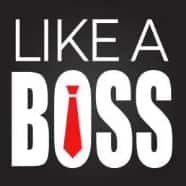SN Subrahmanyan, managing director of leading infrastructure company Larsen and Toubro (L&T), was handpicked for a bigger role by group chairman AM Naik after the latter spotted his capabilities as a project director in an assignment in Delhi. Subrahmanyan has a reputation as a strict boss but is also known to have a personal connect with employees of every level, which has helped him track multiple projects simultaneously.
According to him, it is important to create a conducive atmosphere in which people are empowered to give their best. He also shares the secrets of running a large enterprise like L&T and the books that have influenced him.
Edited excerpts:
What time do you like to be at your desk?
Running a company is an all-consuming, non-stop exercise. My day starts very early. Generally, I hit my desk by about 7:30 am unless I am travelling. I then dive into my work – clearing papers, responding to messages and mails, taking updates, calling for progress, catching up with clients, resolving issues, and these days, attending an endless series of virtual meetings.
Where is the best place to prepare for leadership: at business school or on the job?
While both education and experience are imperative, I believe a lot has to do with what you are born with because, as they say, leaders are born not made. Often, at orientation programmes for our new crops of Graduate Engineer Trainees, we joke that they need to spend some time ‘unlearning’ stuff to re-orient and re-align themselves to the harsh realities of work at a construction site or a manufacturing shop floor. L&T has frequently been described as a wonderful ‘learning ground’ and it is not without reason because with us one gets exposed to a variety of challenges that are not taught in classrooms: how to plan and execute mega projects to speed and scale, how to manage varied workforces drawn from different backgrounds, of different cultures, speaking different languages and dialects; how to tackle legal issues, how to take demanding clients along with you, how to ensure that your activities are sustainable and plenty more.
Describe your management style.
I am aware that leading a company that is so diverse and complex like L&T is a huge ask and that, being at its helm, the buck stops with me but I adopt a collaborative method and most major decisions are arrived at collaboratively. Be it holding a business or divesting it, entering a new business line or acquiring a company or even decisions on employee-related matters, decisions are taken concertedly with my senior colleagues who form what we call the ‘Executive Committee’ or the ‘ECOM’. The views and opinions of our Business and Project Heads are invaluable because they are the people at ground zero and their perspective is extremely vital.
Essentially, it is important to consider all points of view, including contrarian ones to yours, to arrive at an optimum solution. Of course, not all decisions are correct; in fact, L&T is also known as a company that allows one to make mistakes provided one learns from it. Even with a collaborative approach, you can still get it wrong, but you can always rest assured that you have given it your best shot!
Are tough decisions best taken by one person or collectively?
As I said before, as the leader the buck stops with me and, in most cases, I have to take the final decision, easy or tough, but before arriving at that decision it is imperative to do the due diligence of thoroughly exploring all angles.
Do you want to be liked, feared or respected?
Very few outstanding leaders would win popularity contests but without doubt, all of them will be respected and, certainly, I would be like to be more respected. It is well-nigh impossible to please everyone all the time and fear never brings out the best in people. It is always my endeavour to create a conducive atmosphere in which my people are empowered to give their best.
What does your support team look like?
My strategic support team comprise my senior colleagues and we discuss, debate and decide on all business issues. We have a Corporate Centre that provides valuable strategic inputs to aid our decision making. I am assisted in my day-to-day matters by an administrative support team that includes Executive Assistants (EAs) who are mandated different responsibilities and are my ‘ears and eyes’. In fact, we have converted this process into a Mentoring Programme: these EAs are carefully screened, selected, and undergo a pretty vigorous on-the-job training of anywhere between 12 and 18 months that prepares them to be future leaders of the company.
Note to the Readers
How do corporate India’s leaders manage their businesses?
Where do they draw inspiration from?
What is their management style?
Like A Boss
is a new series of interviews aimed to offer readers lessons from corporate bosses on how they run their companies.

A business outside of construction sector or a business leader that you draw inspiration from?
It is a fact that L&T is a company without parallel considering its scale, scope and complexity but even so, I am impressed by Siemens as a company that is very similar in its size, complexity and range of diverse businesses and the manner in which they have strived to maintain a unity in their diversity is worth emulation. I see a lot of similarities in several challenges that both Siemens and L&T face and I do closely track their strategic and tactical moves.
Which management book has influenced you the most?
There are a few books that I have found interesting and inspirational. Alfred Sloan’s My Years with General Motors about how he led General Motors Corporation to international business success with his brilliant managerial practices gives insights into the new consumer economy that he and General Motors created. Steve Jobs, the biography of Apple’s founder by Walter Isaacson introduces one to Job’s passion for perfection and ferocious drive that revolutionized several industries is another book that I am influenced by as also is Phil Knight’s Shoe Dog that traces the rise and rise of Nike.
Do you socialise with your team outside of work?
Yes, I do.
What would your key management advice be?
Performance, to me, is the only mantra for success that presupposes several aspects. Even in these unprecedented times as a ‘new normal’ is evolving and we are witnessing paradigm shifts, success will court the one who is able to adapt and adopt change quicker. The challenges are new that warrant fresh thinking, new strategies, and revolutionary solutions. Only if you can come up with them faster than competition, can you stay ahead in the race.









